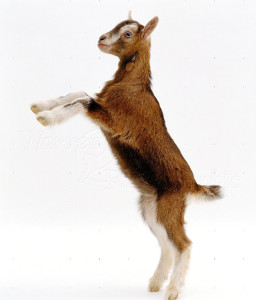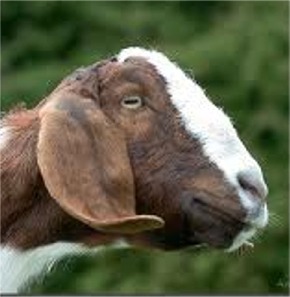Small Ruminant – Goat Preventive Health Care
The best way to deal with a medical problem is to prevent it from occurring in the first place.
The following are the recommendations of Mobile Veterinary Service for goat preventive health care. Printable PDF
 KIDS –
KIDS –
Immediate New Born care: Most important – Be sure kid is nursing
- General physical exam
- Check to be sure is nursing well
- Dip naval
Check Nanny (adequate milk supply, passage of placenta, body condition, etc.)
Immunization:
Use CD&T – Clostridium Perfringens Type C, Clostridium Perfringens Type D, Tetanus
Give at: 1 week, 1 month, and 2 months
De-worming:
One way to protect kids from parasitism is to strategically deworm the does. To do this, treat kidding does with an effective de-wormer 3 weeks prior to kidding.
De-budding:
De-buding prevents the growth of horns. If sure that is not a polled breed (no horns), easiest at 1-2 weeks of age. If you are not sure, it is best to wait a few months to see if they begin to grow horns. If you choose to wait, at the first sign of a small “bump” beginning to grow debudding should be performed.
Castrate Billy-kids:
This is most easily done between 1-14 days of age, but can be accomplished later if needed, and for pet goats it is advisable to wait until after puberty (3-5 months).
 ADULT GOATS
ADULT GOATS
Goats are very hardy animals and generally require only the most minimal of care once grown.
Suggest goat care:
Vaccinate annually:
Tetanus and C. Perfringens Type C and D
Effective De-worming:
Parasitism is one of the top two reasons for death loss in goats. The best protocol for de-worming your goats will vary with types of parasites, and resistance and contamination levels within your pastures. Mobile Veterinary Service currently recommends the FAMACHA de-worming strategy.
In order to make effective treatment and control recommendations, it is essential to know what de-wormers are effective on the farm. An effective program requires more than giving medications; it includes: strategic timing, correct medication selection and dosage, and sound pasture management.
For more information on an effective de-worming strategy click here.
Hoof Care: Periodically, evaluate hooves for abnormalities and trim or treat as necessary
Body Condition: Evaluate goats regularly for proper amount of fat. Feed under conditioned goats more, and over conditioned goats less. Read more about goat nutrition here.
